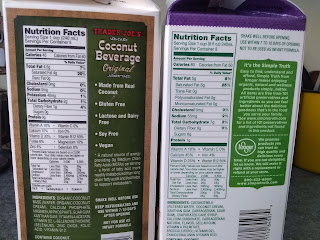As I continue my search for anti-inflammatory food choices, I found an interesting article that backs up my personal experience in the difficulty in pinpointing an inflammatory food culprit, "the role of dietary modifications in Rheumatoid Arthritis is not well understood". Also, there has been no study that links high oxalate consumption to Rheumatoid Arthritis but there is mention of it possibly being an irritant to RA. Calcium supplements bind with oxalates to remove them from your body (everyone naturally has some level of oxalate in their body). But there is risk involved if regularly consuming calcium; Taking calcium supplements without consuming a meal can raise the risk of urine calcium excretion and stone formation! Have you noticed doctors have stopped recommending calcium supplements (remember when that was highly recommended along with Vitamin D)? Now they just recommend taking Vitamin D. I only take calcium if I am having an obvious oxalate problem with a food I just consumed (read about my prior oxalate troubles).
I was experimenting with taking 1000 mg of Vitamin D a day because I read that it might help ease RA symptoms (I have never been low in the vitamin). My hair started falling out and a friend told me that was a symptom of a vitamin D overload! Once I stopped, magically my hair stopped falling out. My point is that you can not take everything you read as face value! Any sort of diet change that worsens symptoms is not a good thing. Listen to your body, it really is in control.
 |
| Still off coffee but I did have 1/4 of a cup Sunday, no reaction. |
Dairy will help neutralize oxalate so it's better to mix the super high oxalate cocoa powder with dairy milk when you're making that hot chocolate as cocoa and carob are high in oxalate. Soy and rice flours are super high in oxalate. Wheat flour is not too far behind so a piece of chocolate cake is much worse than a slice of pie for example.
 |
| Grandmother's Pie, yes I will eat a sliver. |
 |
| I'm a big label reader, coconut milk brands are not alike! |
Next I'll be looking at the Acid Alkaline Diet for any clues as to inflammatory foods that might be aggravating my RA. In the meantime, I'm keeping a daily food log and am trying to eat less chocolate, gluten and sugar. Life is too short to not enjoy a sinful food every now and then, just going to keep it a small portion!
~ Rebecca















